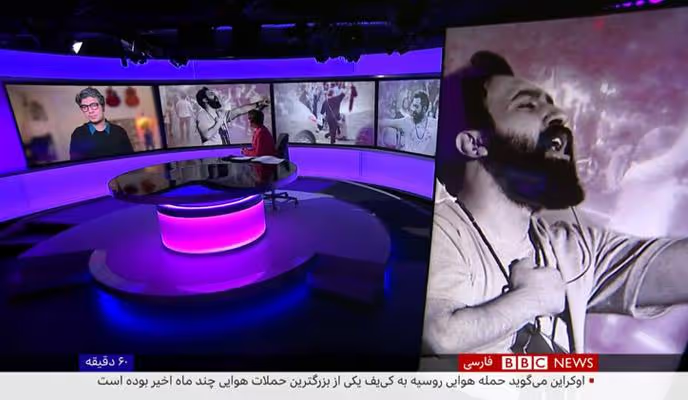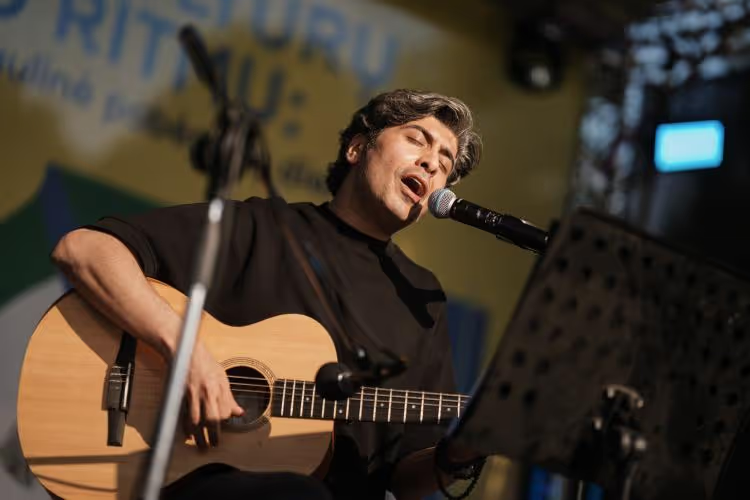Artists Defying Repression in Iran – Arya Aramnejad in Interview with BBC Persian

In the context of the recent arrest of Iranian singer, Mehdi Yarrahi, alongside a wave of imprisonments over the past year, musician and composer Arya Aramnejad talked to BBC Persian about the Iranian security apparatus and its brutal methods of controlling artists.
With the upcoming one-year anniversary of Mahsa Amini's death which sparked the biggest protests in Iran since 1979, the Iranian government is tightening its grip on protests and freedom of expression across the country.
In an interview with BBC Persia on Tuesday 29th August, Iranian musician and composer, Arya Aramnejad stressed the Iranian regime's increasing crackdown on artists and creative professionals over the past year:
In the past year and since the beginning of the ‘Women Life Freedom’ movement, which followed the death of Masha Amini at the hands of the Iranian Morality Police, singers who have protested through their art have increasingly come under fire. During the past year, Shervin Hajipoour; Tomaj Salehi; Saman Yassin and the latest example Mehdi Yarrahi, have been arrested for publishing songs against the mandatory hijab, and for supporting the protest movement in Iran.

No stranger to censorship, restrictions, and brutality at the hands of the Iranian regime, Arya Aramnejad rose to fame with the songs Ali Barkhiz and A Touch of Freedom which spoke against the violent clampdown on opposition in Iran in 2009. Condemning the leadership of the Iranian regime, Aramnejad's songs led to three arrests and severe restrictions on his possibility to work and live freely.
In his interview, Arya spoke about what happened to him as one of the first artists who produced and performed protest music inside Iran, and of the brutal control and detention methods employed by the regime's security apparatus. He said:
The regime did not only harm me, my art, and my possibility to perform other professional activities. They created restrictions and pressure on family members and friends too. I was ultimately forced to leave the country due to these difficulties.

Belief in Artists' Resilience and Agency for Change
Talking with BBC Persia, Aramnejad still pointed out that Iranian artists' resilience and will for change is very strong, and that he believes that the Iranian regime will not be able to crush popular and artistic resistance:
Now the taboo and fear of publishing protest music in Iran has diminished. In the continuation of this movement, and in protest movements to come, other singers in the country will put aside tolerance and fear of threats and restrictions imposed on them and will attempt to express their protests in different ways. They make art, and the government will be unable to control all the artists.
Arya Aramnejad left Iran in 2017 and arrived in Stockholm as part of the ICORN programme, where he was the ICORN resident between 2017 and 2019. He continues writing and performing songs which inspire social and political change, focusing on human and women's rights, and supporting protesters in Iran.



